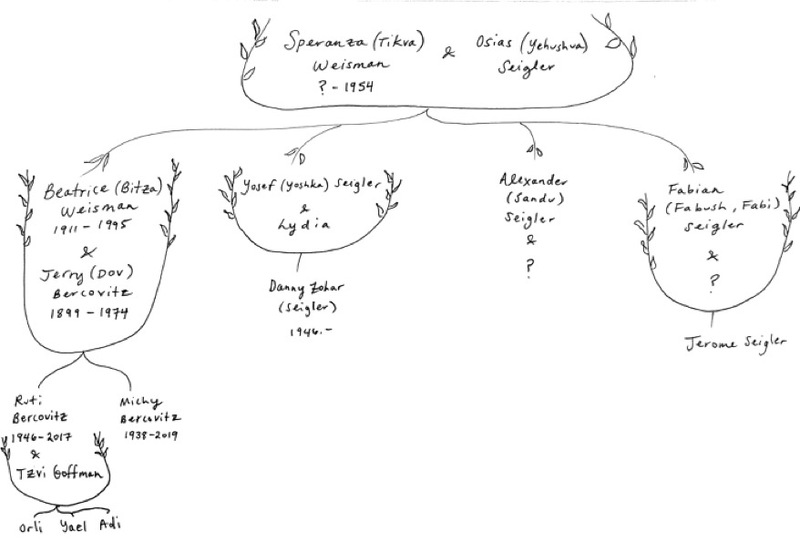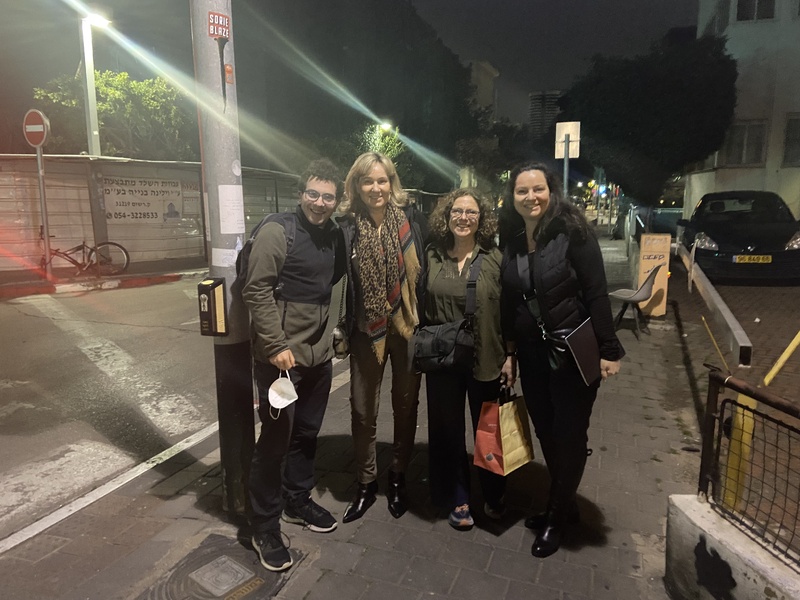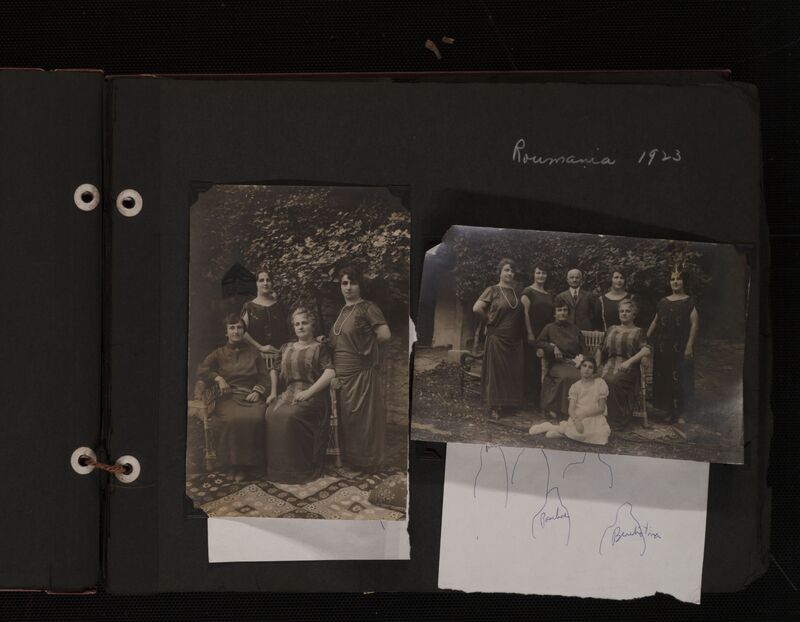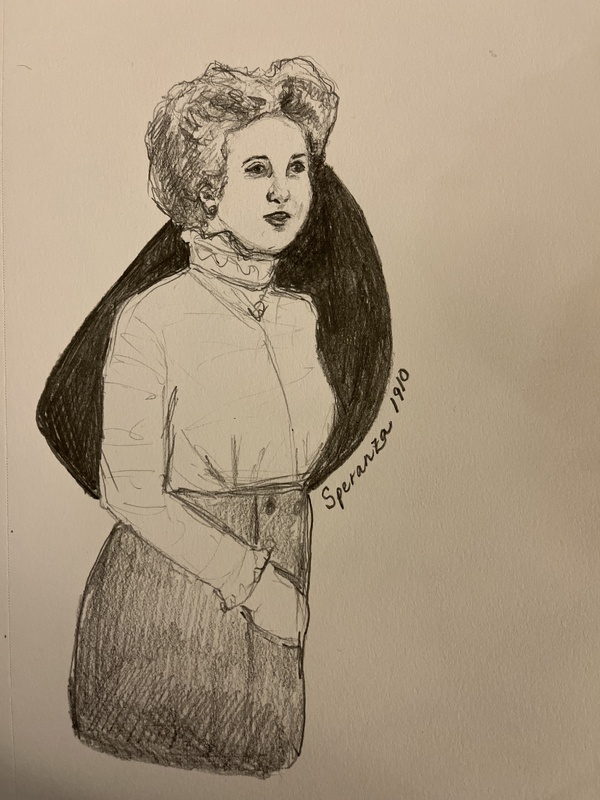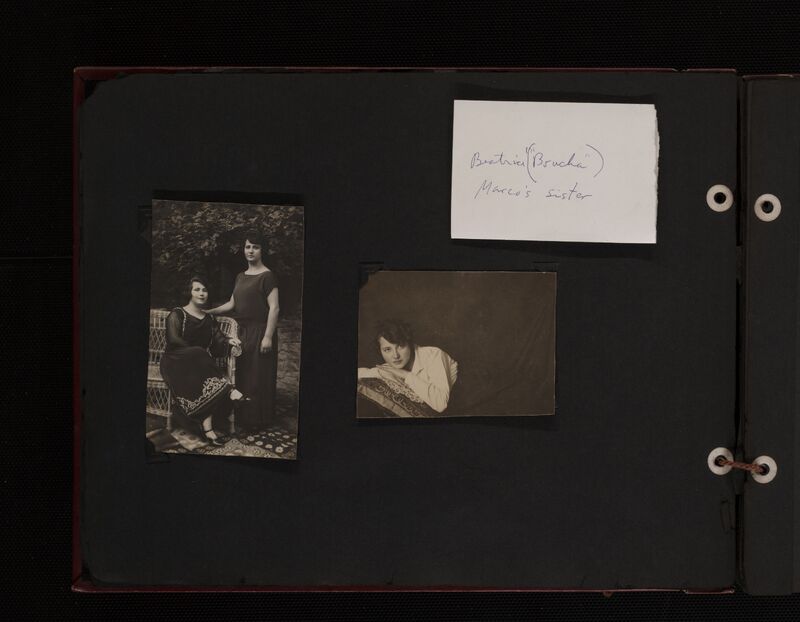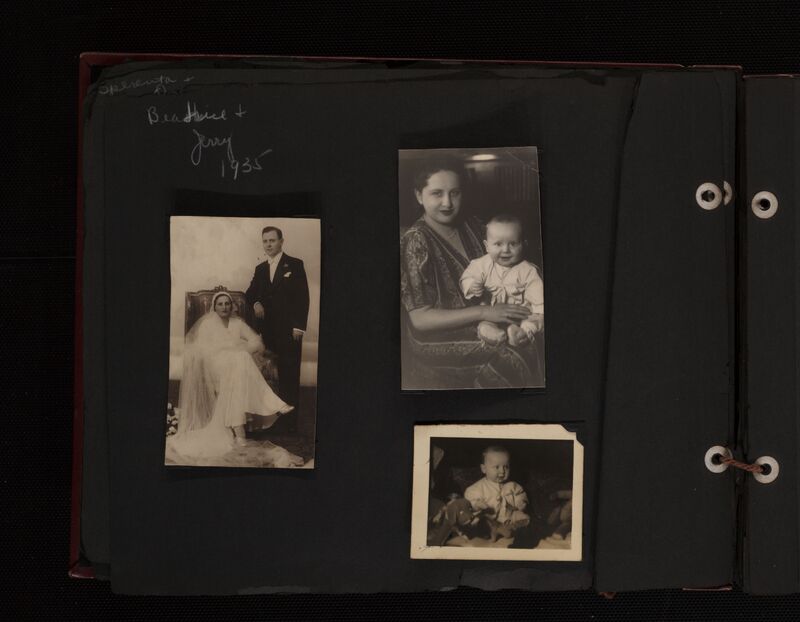Yael & Orly
Our great-grandmothers were sisters
Two Sisters: Yael and Orly (Speranza’s Great-grand daughters)
Café Noir is a lively, upscale café in the middle of Tel Aviv nightlife. Sammy and I met Yael and her sister Orly in the evening there. Yael and Orly both take after their grandmother Bitte (Beatrice) Weisman (as I imagined her), attractive, elegant and friendly. Are we trying to make up for lost time, a lost repetition of shared family time? There was a feeling of family and the idea that we are reconnecting strands that were left dangling after the war. Yael’s mother Ruti was five years old when she arrived in Israel from Romania with her parents and grandmother, Speranza, my great-grandmother’s sister. Yael tells me how happy they are to have found us since they don’t have many relatives. The abundance of an extended family is something they have missed. There was also the symbolism that it was two sisters meeting with us.
During our meeting with Yael and Orly I thought about our great-grandmothers. When I look at the photo of the Weisman sisters, Paulina, Benedictina, Speranza and Rebecca together I think of how close they must have felt. It was a long journey to travel back to Romania, yet Paulina did so in 1923, by herself. In 1904, Paulina made the first trip to the United States by ship, alone with three small children. When I see the sisters gathered together in their photograph, I can imagine Paulina’s strong motivation to travel again in 1923 to see her Romanian family.
In Photo on left, seated: Paulina (left), Benedictina (right); Standing: Speranza (left), Rebecca (right)
At the café with Yael and Orly, I recalled another photo of the Weisman sisters. On the left hand page of the photo album are two of Paulina's sisters. The Weisman women are dressed elegantly in long gowns. One of the sisters has her legs crossed, showing off new, crisp and fashionable leather shoes
It was striking to sit in a café with my cousins in Tel Aviv, and feel warmth and family when previously we were strangers. After puzzling for years over the identity of the individuals in the photo album, it was a momentous, to find the grandchildren of Bitza, and to discover that the baby Michy grew up to be clearly loved by Yael and Orly. The bride Bitza's veil cascades along the armchair with her ivory slippers sparkling. Gerry stands in full formal suit, his bowtie fitting exactly with a white handkerchief in his front pocket. Bitza has delicate pearls around her neck as she holds infant Michy in Romania in July of 1935 (see Figure 57). While we do not have the stories of how they withstood the danger, fear and devastation of the war years in Romania, we know now that they managed to survive, and find sanctuary in their new home finally in 1951.
I found out that "Beatrice" was called "Bitza", her nickname.
"Bitza" Beatrice (Weisman) and Gerry Dov Bercowitz, 1935; Beatrice and Michy
Yael heard from her uncle Michy that when they arrived in Israel they had lost everything. Post war Israel was not kind to Romanian Jewish immigrants. They were disliked and not trusted as a group. As seems to be human nature, there was a hierarchy of war refugees, with the German immigrants at the top and Romanians at the bottom (D. Beck, personal communication, May, 2022). When I met with Danny Zohar, (Yael connected me to cousin Danny) he explained that this was a difficult time for the family.
